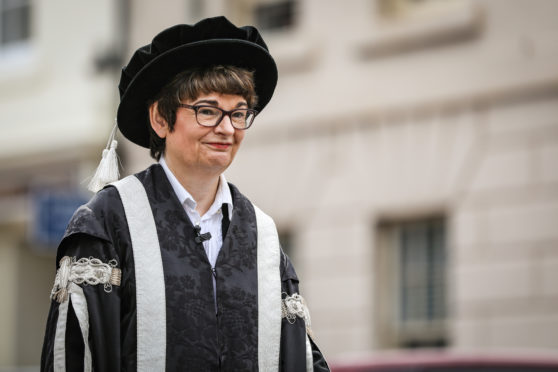St Andrews University will be able to award medical and dentistry degrees for the first time in more than 50 years if new legislation is passed by the Scottish Parliament.
Holyrood’s health and sport committee is seeking views on the new University of St Andrews (Degrees in Medicine and Dentistry) Bill which would remove an archaic legal prohibition that currently prevents the university from doing so by repealing a section of the Universities (Scotland) Act 1966.
If passed, the Bill would be the first step in allowing the university to award, jointly with the University of Dundee, the qualification to Scottish Graduate Entry Medicine (ScottGEM) students, who are set to graduate in 2022.
The merger of Dundee University’s medical school with St Andrews’ Bute Medical School in 1897 meant St Andrews could award medical qualifications for the first time, a relationship that continued until the 1960s.
However. the 1966 Act saw St Andrews lose its right to award medical degrees as it made Dundee and St Andrews entirely separate universities.
Health secretary Jeane Freeman says removal of this legislation would create a fairer higher education sector in Scotland, enabling all institutions to maximise the options and opportunities they offer to students in Scotland.
“This Bill will remove an unfair, archaic and anti-competitive prohibition which prevents the University of St Andrews from awarding medical and dentistry degrees,” she said.
“No other higher education institution in Scotland or the UK is prohibited by legislation from awarding degrees in any discipline. The Bill will therefore create a fairer higher education sector and enable all of our valued institutions to maximise the options they offer to students.”
The university would be unable to unilaterally decide to offer degrees in medicine or dentistry in its own right as there are a number of financial and regulatory controls and standards which would have to be met before this could be considered.
St. Andrew’s University Principal and Vice-Chancellor Professor Sally Mapstone said the institution supported anything that ensures a “level playing field”.
“The past few months have underlined just how important our health services are to everyone in Scotland and the university is keen to continue to play its part in educating and training health workers of the future,” she said.
“This legislation will help us make our contribution to deliver better health care, retain NHS staff and ensure a sustainable NHS that delivers for our communities, urban and rural.”
British Medical Association (BMA) students’ committee member and University of St Andrews student Catriona McVey added: “The Scottish Graduate Entry Medicine (ScotGEM) course in 2018 has proved to be a unique and innovative course focusing on rural medicine and health improvement.
“The BMA believes repealing the legislative prohibition is the right course of action and a matter of basic fairness to ScotGEM students and would allow the graduation of ScotGEM’s inaugural cohort – the first new St Andrews doctors this century.”










